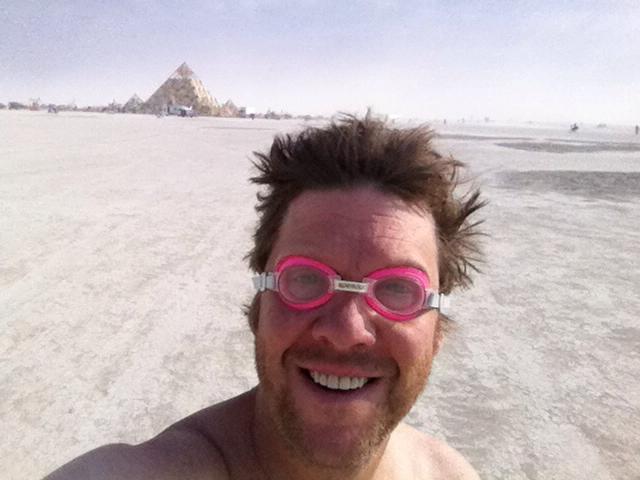15 Minutes ... Todd Runestad has the write stuff
And if this isn't enough, download the Functional Ingredients app, free at the Apple Store or Google Play. Or, if you're still content with your computer screen, visit newhope360.com/supply early and often!
November 13, 2013

Fi: What was industry trade magazine coverage of science like when you first began reporting on it, and how has it evolved?
TR: I cut my teeth in the industry with Nutrition Science News. It was a valuable resource for retailers to receive independent, technically reviewed information on the state of the science. We were careful to talk about equivocal studies and safety issues along with the positive. Nutrition research can be tricky business in a world established by the pharmaceutical drug model of double-blind placebo-controlled randomized human clinical trial using a single synthetic chemical constituent. With nutrition, there tend to be lots of natural bioactives working together, and they tend to work slower, and it’s usually about prevention or optimized living — which are difficult things to quantify. One big change is the continuous amassing of research. It’s pretty undeniable nowadays. The problem remains that mainstream Western allopathic physicians get next to none nutritional training. They can’t conceive that what you put inside your body at least three times a day — food — can possibly have any effect on your health. They’re trained in disease treatment, not actual health care and maintenance.
FI: How has the quality and frequency of science changed over the years?
TR: Frequency has clearly gone up. The quality is still a bit all over the map. But that’s because, again, quantifying nutrition’s role in disease management is tricky business, not least because even if you have a natural nutritional bioactive that can actually prevent, cure or treat a disease, the FDA — a wholly owned subsidiary of Big Pharma — will not allow you to say it. Problem! As a rule of thumb, any time you read about a research study where a researcher is quoted in the media as saying words to the effect that this study proves once and for all that [insert nutritional ingredient here] does not work so you can stop taking supplements, disregard the study right then and there. Because nothing is ever “proven,” only demonstrated in this particular study parameters.
Fi: What is the industry doing well in backing products up with evidence, and what do we need to do better?
TR: There is not a great deal of incentive to protect a nutrient and receive a handsome return on that investment, a la a pharmaceutical ingredient. So I’d like to see the government take over that role and do a much greater job funding independent research in this area. I think that the research they do sponsor can be a little better thought out. Sometimes it seems they want to just confirm where the limits of benefit are, like using St. John’s wort for major depression even though it had only ever really been recommended for mild to moderate depression. When the results came up null, that’s fine to confirm that, but of course the media failed to make such distinctions and merely said St. John’s wort doesn’t work for depression, period. It would have been more valuable all the way around — except perhaps for the makers of Prozac — to confirm the herb’s benefit on the mild to moderate side. Sigh.
Fi: As someone who has been covering ingredients for years, what does the ideal ingredient have and how should it be marketed to be successful long term?
TR: There’s a proper step-wise fashion to bringing a new ingredient to market. You first want to establish safety. Then efficacy. Then dosage range. Then get your supply chain buttoned up. Then figure out the marketing that perfectly aligns with the research in dosage, condition and target market. Then figure out your story — everybody’s got to have a compelling story to tell. It’s nice if you can work to protect the intellectual property somehow to give yourself some protection from the pirates. And then be aggressive about protecting it — a patent’s not worth much if all you do is admire its reflection.
Fi: Burning Man? Really?
TR: The community that gathers there will be the one to evolve Homo sapiens. We can use all the help we can get. Plus, this year’s Nobel Prize winner in Chemistry is a Burner.
Suz knows. Check out Suzanne Shelton's top-shelf PR agency, The Shelton Group.
About the Author(s)
You May Also Like




